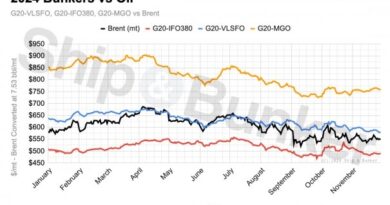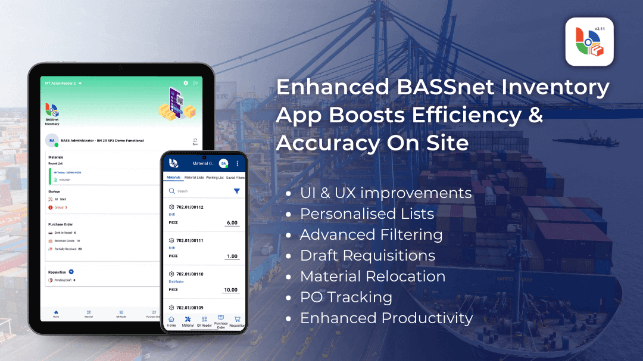Governments and industry reaffirm commitment to trade and global stability at high-profile Athens Summit

Shaping the Future of Shipping Summit
Mr. Emanuele Grimaldi, Chairman of the International Chamber of Shipping
Your Excellencies Ministers,
Distinguished guests,
Dear colleagues,
It is a great pleasure to welcome you all to the Shaping the Future of Shipping Summit here in the historic city of Athens. We are grateful for the warm hospitality of our hosts, and for this beautiful setting. What better place than one of the world’s most prestigious conservatoires for us to orchestrate the dialogue and cooperation our industry so urgently needs.
I’d like to thank Prime Minister Kyriakos Mitsotakis for his kind words and insightful remarks – we are sorry that he could not be here with us today.
We find ourselves in a period of phenomenal upheaval. The world around us is shifting in profound and sometimes disconcerting ways. Global trade patterns are becoming increasingly fragmented. Geopolitical upheaval, be it through armed conflict, strategic competition, or growing regulatory divergence, is no longer a distant backdrop. It is a force that is reshaping our operating environment in real time. And
amidst this uncertainty, the expectations on shipping are undiminished. We are still relied upon to deliver goods, growth, and, most critically now, solutions.
But unilateralism and protectionism threatens this ability to deliver and threatens nations abilities to grow and prosper.
The rising tide of unilateral trade barriers being imposed by governments around the world is a cause for serious concern. These measures, however well intentioned, introduce unnecessary complexity into our industry. They drive up consumer costs, create inefficiencies, and undermine the spirit of cooperation that global trade depends upon.
Tariffs and other unilateral actions risk damaging the very foundations of global commerce. They erode competitiveness, create regulatory fragmentation, and can entirely change trade flows. This is why we must continue to think and act on a global scale. Shipping, by its very nature, is a global industry. It makes little sense to tackle our challenges in fragmented, regional ways. As an industry and as the maritime value chain we must speak up, explain and identify solutions.
And it is this heightened context of political risk that we also need to address the critical challenge of decarbonisation. We all recognise the urgency. Our industry, which connects the world’s economies, must also lead in connecting the world to a sustainable future.
We all have our part to play. The recent meeting of the International Maritime Organization’s Marine Environment Protection Committee in April was a pivotal moment that showed the steps our industry is taking. While it did not give us everything we hoped for, the decisions taken represent progress, and now we must turn that progress into practical action.
This pivotal agreement was reached after a great deal of hard work by many, both member states and industry. Here I would like to take a moment to recognise and honour the memory of Spyros Polemis, one of my predecessors as ICS Chairman, who sadly passed away last year. Spyros had the foresight to initiate much of industries thinking on this subject and his leadership will not be forgotten.
Above all, we must remember the human dimension of this transformation. Our people, those who work on our ships, in our ports, and across our vast supply chains, will be on the front lines of change. Any agreement, and any regulatory structure, must take account of their safety, their training, and their future.
And critically, the MEPC agreement must factor in the funds needed for the upskilling of our seafarers, to prepare them for the future of shipping – something clearly identified at our Seafarer Summit in Manila.
As we press ahead with the decarbonisation agenda, it is important to remember that all industry will require access to alternative fuels, not just shipping. One initiative that aims to reconcile this is the Clean Energy Marine Hubs, or CEM-Hubs, a practical, platform that will help us implement change where it matters most: in ports, infrastructure, and fuel supply networks.
The CEM-Hubs initiative has convened energy ministers with key shipping stakeholders that I hope will help to create the future architecture of the transportation of fuels, not just for our use, but as a commodity for all. This initiative is also a partnership with the International Association of Ports and Harbors, and I would like to thank Jens Meier and Patrick Verhoeven for being here today and their leadership – it is crucial that the wider maritime cluster continues to work closely.
I look forward to the outcomes of the next CEM-Hubs energy ministerial meeting in Korea. We are pleased that the Greek government has joined the initiative, alongside Norway, Canada, the UAE, Panama, Uruguay and Brazil. The ranks have also recently been bolstered by the addition of Malta and China, which strengthens the impact of the initiative. Together, we are building a global coalition, a unique collaboration between governments and critically industry, many of whom are in this room today.
I would therefore like to offer my sincere thanks to the Ministry of Maritime Affairs and Insular Policy for the Government of the Hellenic Republic, under the leadership of Minister Kikilias, and the Union of Greek Shipowners, under my good friend Melina Travlos and her board for co-hosting this important Summit with ICS. Your assistance and warm hospitality have made this event possible. Thank you as well to our sponsors, whose support has been vital in making this Summit a success, your leadership in supporting this dialogue is much appreciated.
Let me close by saying that I look forward to continuing these discussions at our next Summit in Hong Kong on the 16th and 17th of November. There, we will build on the progress we make here today and continue working together to shape the future of shipping, and I hope to see many of you there.
According to the founding mythology, it was here that Athena, goddess of wisdom, battled Poseidon, god of the sea, for the patronage of our host city. Today, perhaps we are called not to choose between the wisdom of Athena and the power of Poseidon but to unite them. To bring insight and strength together, and in doing so, to forge a stronger, more united maritime community, capable of navigating the complexities of our time
Thank you, and I wish you all good discussions today.
Source(s): The International Chamber of Shipping (ICS), Union of Greek Shipowners (UGS)




